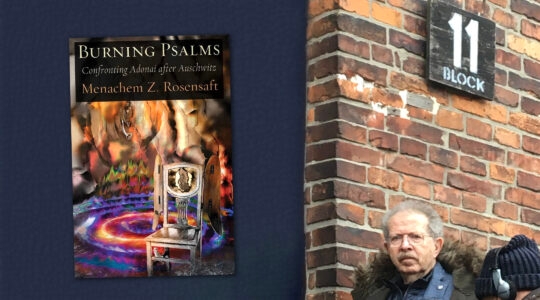In 1492, the ancestors of Jo Carrillo-Ostrow were, according to a family story she heard while growing up Catholic in northern New Mexico, among the 200,000 Jewish citizens of Spain who became former citizens during the Inquisition-era expulsion.
Now, more than five centuries later, she may become a Spanish citizen again.
Carrillo-Ostrow, who four decades ago left New Mexico and embraced her Jewish identity, said she is thinking of applying for Spanish citizenship — and hence, a Spanish passport — following Spain’s recent extension of a law that would offer citizenship to people who can prove they are descended from Sephardic Jews who were forced to leave Spain in the late 15th century.
Portugal, which expelled an estimated 20,000 Jews in 1497, also offers citizenship to those abroad who can show that they are descended from Portuguese Jews.
Carrillo-Ostrow, a law professor in the San Francisco area, recently approached Sara Koplik, who, as director of community outreach at the Jewish Federation of New Mexico, in Albuquerque, and editor of the New Mexico Jewish Link, serves as a research resource for people interested in proving their Jewish bona fides in order to apply for Spanish or Portuguese citizenship.
The number of these people has increased during the last two years, Koplik said. Since the election of Donald Trump as president, a growing number of men and women, concerned by a growing climate of intolerance in this country — especially against Hispanics — have started to consider an overseas country as a safety valve, a fact recognized in a New York Times story last week.
When Trump was elected, we went from a very small program to something far larger. Far more Americans became keenly interested in this process; both Jewish and non-Jewish. We have a lot of fear expressed about the future.
“When Trump was elected, we went from a very small program to something far larger,” Koplik said in an email interview. “Far more Americans became keenly interested in this process; both Jewish and non-Jewish. We have a lot of fear expressed about the future.”
Sarina Roffe, a Brooklyn-based expert in Sephardic genealogy and author of last year’s “Branching Out from Sepharad” (Sephardic Heritage Project), said she expects the number of people interested in an Iberian passport “is going to increase.” She works with people who have Sephardic roots but didn’t offer a figure on how many people have approached her for documents.
One sign of the increased interest: a dedicated Facebook group called “Sephardic Jews and Spanish Citizenship.”
Jews who were forced to convert to Catholicism were referred to as conversos, and many of their descendants are unaware of their Jewish roots. Some, like Carrillo-Ostrow, who knew of their Jewish backgrounds, later returned to the Jewish community, sometimes undergoing a formal conversion if their Jewishness could not be proven according to Jewish law.
For Spain and Portugal, whose governments have stated that the welcome-back legislation is a way of atoning for their countries’ past sins, the embrace of descendants of one-time citizens is good for both image and tourism; for the recipients of the passports, it’s a symbolic step, and an entry into the EU, which offers ease of travel in Europe.
The Spanish application process, whose requirements include knowledge of Spanish and of Spanish current events and culture, and vetting by a rabbi who knows the applicant or by Jewish representatives in Spain, is more onerous than Portugal’s.
“If a person in my situation can meet the three elements for a Spanish passport — Jewish lineage, language and civics — then I think it makes sense to consider that option,” Carrillo-Ostrow said. “Same with Portugal for those who can meet those elements.”
If she qualifies for a Spanish passport, she is unlikely to move there, Carrillo-Ostrow said. A member with her family of a Conservative synagogue, she leads a “normative” Jewish life. “I would like to stay here and make things better in this country. I haven’t packed my bags yet.”
The New York Jewish Week brings you the stories behind the headlines, keeping you connected to Jewish life in New York. Help sustain the reporting you trust by donating today.




